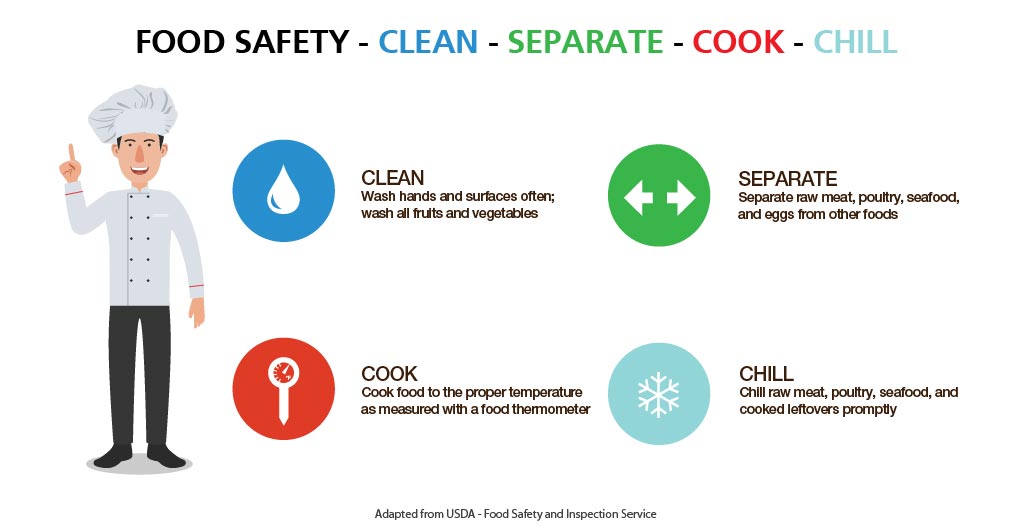- Advertisement -

Popular
Tailgate Party Food Safety
Because tailgate parties are an all-day food grilling and feast, there is an increased risk of foodborne illness. Cooking outdoors presents a food safety challenge. Not not only does bacteria multiply faster in warmer temperatures, but preparing food outdoors makes safe food handling more challenging. Every good tailgate party starts with a good game plan - that should include food safety.
Norovirus Prevention
Norovirus is a highly contagious virus and the most common viral foodborne illness. Norovirus infection is acquired by consuming produce (fruit and vegetables) irrigated with contaminated water contaminated with human or animal feces - or shellfish farmed or harvested in water contaminated with human sewage. Because only a few norovirus particles can make people sick, infection can also occur by consuming food handled by a person infected with the virus - or being in direct contact with an object, surface, or person that has been infected.
Grilling and BBQ Food Safety
Summer months brings out everyone's barbecue grills. But, in warmer temperatures - additional food safety care must be taken because bacteria multiply faster. Following a few simple principles and guidelines can prevent a food illness.
Food Safety Attention While Eating Out
Dinner and a movie date night? Ditch the leftovers, not your date! Remember, leftovers are only safe for 2 hours at room temperature and won’t last through a movie - and only 1 hour if the temperature is over 90°F. After that time, bacteria growth can occur and cause food illness. Likewise, during warmer months bacteria multiply faster – so keeping food safe is more challenging.
Older Adult Food Safety
Food safety is especially important for older adults. Older adults should avoid certain foods to protect themselves from foodborne illness and adults 65 and older are at a higher risk for hospitalization and death from foodborne illn

























